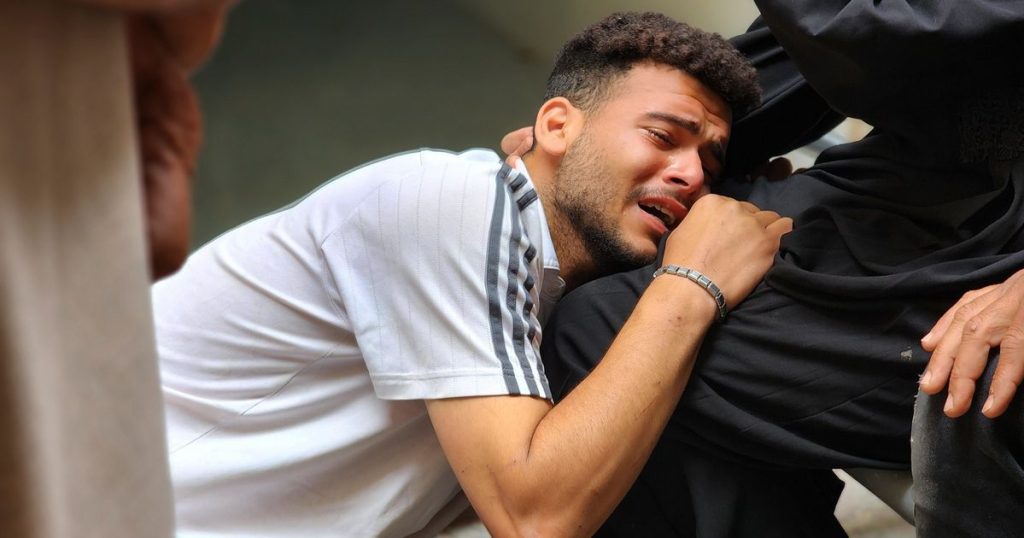The situation in the Gaza Strip is dire, with hundreds of thousands of Palestinians displaced due to ongoing military operations by Israel. The United Nations agency for Palestinian refugees reported that 360,000 Palestinians have fled Rafah, with another 100,000 displaced in northern Gaza. This amounts to about a fifth of Gaza’s total population being displaced. Food and aid distribution has been severely impacted, with limited supplies reaching the affected areas. The closure of key crossings has hampered humanitarian efforts, leaving many without access to essential resources.
The ongoing conflict between Israeli forces and Palestinian militants has intensified in Rafah and other parts of Gaza, leading to further displacement of civilians. The Israeli military operation, focused on targeting tunnels and infrastructure used by militants, has disrupted daily life in the region. Aid organizations are struggling to reach those in need, with limited access to key areas experiencing heavy fighting. The situation is exacerbated by the closure of the Rafah crossing into Egypt and difficulties in accessing the Kerem Shalom crossing with Israel.
The humanitarian crisis in Gaza is worsening, with reports of disease outbreaks, damaged infrastructure, and inadequate access to clean water and sanitation facilities. The dire conditions are putting the lives of innocent civilians at risk, with hospitals and medical staff facing challenges in providing care to the sick and injured. The lack of basic necessities, combined with ongoing violence, has left many vulnerable and in desperate need of assistance. The international community has expressed concern over the situation in Gaza, urging both parties to prioritize the safety and well-being of civilians.
The conflict between Israel and Hamas dates back to October, when militants launched a deadly attack on southern Israel, resulting in significant casualties and hostage-taking. The subsequent Israeli offensive has led to a high number of Palestinian casualties, with thousands killed or injured during the violence. The toll on civilians, particularly women and children, has been devastating, further exacerbating the humanitarian crisis in Gaza. Efforts to negotiate a cease-fire and secure the release of hostages have stalled, leading to continued violence and displacement.
Israel has faced criticism for its handling of the conflict, with growing discontent among the population and protests against the government’s response. The failure to reach a resolution with Hamas and address the root causes of the conflict has raised concerns about the long-term stability of the region. The United States, a key ally of Israel, has expressed impatience with the ongoing violence and urged for a realistic plan for postwar governance in Gaza. The need for a sustainable solution that prioritizes the well-being of civilians and addresses the underlying issues fueling the conflict remains paramount.
As the situation in Gaza continues to deteriorate, with limited access to essential resources and ongoing violence, the need for immediate humanitarian assistance is critical. Aid organizations, despite facing challenges in reaching those in need, are working tirelessly to provide food, medical care, and other support to displaced Palestinians. The international community must come together to support efforts to alleviate the suffering of civilians and work towards a lasting peace in the region. Only through collective action and a commitment to diplomacy can the cycle of violence and suffering in Gaza be broken.







